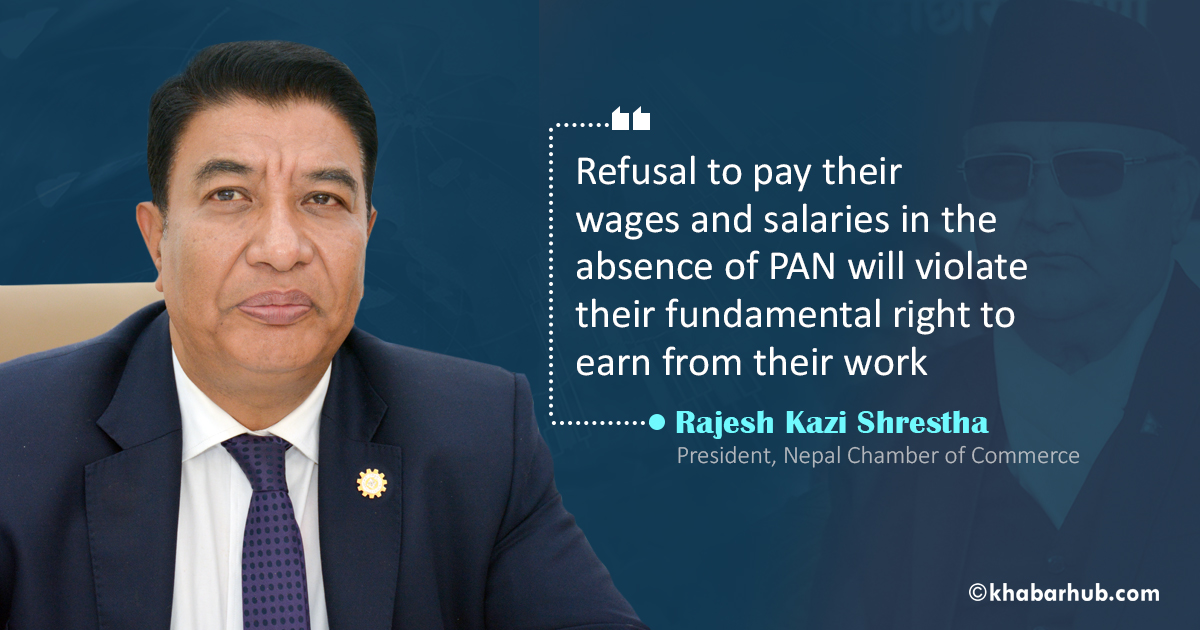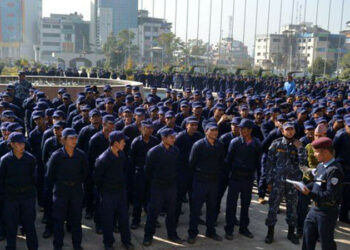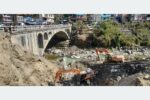Rajesh Kazi Shrestha, President of Nepal Chamber of Commerce, talks about various aspects of government functioning. He is of the view that a government that enjoys a two-thirds majority can lead the country toward development and prosperity. In a conversation with Khabarhub, he expressed disenchantment over the government’s functioning. Excerpts:
Why do you think is the government going back on big-ticket plans one after another? How does it affect the government’s image in the eyes of common citizens?
A government enjoying a two-thirds majority is by all account called very strong government. If the government so desires, there are all the possibilities within the country to go for accelerated economic development. Given the style and contents of the decisions taken in the past, it does not look very optimistic for the government to achieve fast economic growth. I am not saying that the government in its present tenure has not done anything. Yes. I am saying that the government spoke a lot and failed in taking concrete actions on the whole chunk of promises it made as if in frenzy.
The government has simply overlooked the factors of geography (or topography) to take it into account while making plans for economic development. In this way, most of the plans that the government has planned before is getting counterproductive now. Just when this government was being formed, the private business sector of Nepal advanced a proposal suggesting that public holidays must be reduced in a year from the Nepali calendar. The government acted upon it by reducing the numbers of holidays in a year. Such a sad moment it was when the government reversed its own decision by canceling the earlier decision of reducing the numbers of holidays in a year. Isn’t it puzzling? Why did the government reduce the holidays given in a year if only it had added and restore more numbers of holidays?
The government showed the same kind of ‘shoot and scoot’ policy on the issue of transport syndicate. There was a lot of discussion on the removal of syndicates operating in the Nepalese transport business. Common citizens also supported the government but it failed to reform the transport system by eliminating the existence of syndicates due to its own failures. This is the first instance of reneging from the declared plans of the government and it is now the norm for any other ambitious plan that it picks up.
How do you rate the new budget for the current year?
Even the annual financial bill looks poor in terms of targeted plans for improving a lot of the peoples across different regions of Nepal. Hearing the sound of clapping all in chorus while the Finance Minister was delivering the budget speech this year, I was under the impression that the country is witnessing the passage of the historical financial bill this year. However, when I went through the announcements made in the budget this year, I was totally dismayed as to how the government has laid the well-thought out strategy to catch the people of Nepal as helpless consumers only to exploit them. The government has imposed a high rate of tariff on imported goods besides non-competitive non-tariff barriers which do not match with WTO (World Trade Organization) prescriptions.
If Nepal really wants to be in global trade (and not in its self-imposed limited cocoon), then the government of the day must streamline its tariff and non-tariff restrictions in line with global standard to facilitate a smooth flow of goods and services. It is a tragedy that the government has announced to exact direct taxes from every custom point in Nepal. It, instead of strengthening the purchasing power of consumers, is weakening it by its unfriendly business and trade policies which are deflating the money-pocket of each citizen. Just see how the incumbent government has increased the price of daily consumer items such as flour, pulses, and others by adding a higher rate of VAT (Value Added Tax). It seems that the sole aim of this government is to collect more and more revenue by neglecting the welfare of the people.
So, the government has failed as of today to provide promised Ram-Rajya — Good Governance to people of Nepal. You see here in absence of any successful public plans in the Budget. Your comment, please.
At the time of installing the federal structure of governance within the country, a political slogan ‘Government is at the door-steps’ was at the height of popularity. The slogan, though deliberately used to deceive the innocent voters as it appears now, has a great political policy with its mighty future prospect to turn around the life of people. And, why not? People expected to have all the facilities provided by the state along with all the official formalities to be provided at the local level — the very place where they reside.
Now, you see how locally elected representatives have taken out ‘whips’ of exorbitant tax and restrictive rules to lash at all the big and small businesspersons and traders. No work of business community howsoever small that maybe is completed without paying the taxes as local government demands. For business and trader community, the previous government with a centralized system of administration was much better than today’s federally structured government. Even common citizens are fed up with the local government’s propensity of exacting taxes from all and sundry.
This very year (in the financial year 2076/77 BS) a provision that no employer will be able to show the disbursement of salaries into the heading of ‘expenditure’ without having all the staff and workers of all capacity with their individual PAN (Permanent Account Number) quoted. It obviously means that an employee without PAN will not receive any salary. If this is so then how so many Indians working in Nepal will get the salary and there are still many Nepal-born people who have not taken citizenship yet? No PAN will get issued to those who are deprived of their citizenship in Nepal. It further means that even Nepalese citizens will not receive any salary now. What a joke?
Those working in the formal sector at the higher level get their PAN issued but there are millions of people working in the informal sector in an unorganized fashion at the lower and middle level. What is about them? How will they get the PAN? What is the process of getting PAN and how many days does it take? Isn’t it the responsibility of the government to help the Nepalese workers engaged in manual activities struggling to get PAN? As a whole, the system of having compulsory PAN is no doubt good for our economy. Out of a sudden, it is difficult to implement, therefore, we have to introduce it in a phase-wise manner for different regions of Nepal (across all the 5 provinces and 77 districts).
The government has devised the rule that a trader undertaking a transaction of worth Rupees 950 or more needs to quote his/her PAN. A trader is frequently engaged in such transactions where he/she spends or receives the amount more than Rupees 950 say Rs 1000 or Rs 1,500. There are workers who have to be paid every day or after a week or at the end of 15 days or a month. Now, you see here how impractical it is to ask for PAN from laborer and worker every time you are making payment. Refusal to pay their wages and salaries in the absence of PAN will violate their fundamental right to earn from their work. Isn’t it complicated? Therefore, we need to be organized and must manage the matter before it turns into a protest rally and another mass movement against the present Government.
How do you assess the success rate of Social Security Plan proposed by the government?
The incumbent government has introduced another ambitious plan known as Social Security Plan. Publicized well in advance, the plan is not without errors and controversies. The government seems to be carried away by its name and has refused to work on the nitty-gritty of this plan which has more complications involved before it goes for full-fledged implementation. The Social Security Plan in its current form does not go well with the social and economic conditions of Nepal, hence, requires amendment.
The government is experimenting in the area of revenue collection by introducing a new technique such as new Vehicle and Consignment Tracking System (VCTS). The new system will track the movement of all commodities sold in the market and every goods movement for a commercial purpose must be registered under a centralized information system before transporting it any further. How do you look at it?
Okay, I support the initiative taken by the government but we have not yet devised the base to implement the system. At present, there are many locations within the geographical boundary of the country where mobile communication network of the strength measuring 3-G and 4-G is not working to its sufficient level. How will the proposed network for tracking vehicles and consignments work in different parts of Nepal from North to south and from east to west? Besides, what is the guarantee all the drivers on the road will carry the mobile phones?
The government has to make prior preparation by arranging for intensive training at an extensive level for traders, drivers and also the government officials to effect this new revenue collection plan. While interacting with the government, the Nepal Chamber of Commerce has already extended the suggestions for spreading public awareness before this VCTS system is put into operation.
However, it is shocking to see this new system of Vehicle and Consignment Tracking has been pressed into operation all together at the single point of time across the length and breadth of the country in local transportation. We do not have commensurate numbers of manpower to efficiently implement this system and also we are deprived of an adequate level of technical and technological support to make it a success. Traders, businesspersons, transporters, and carriers are worried as they are confused and find it a threat their regular course of business.









Comment